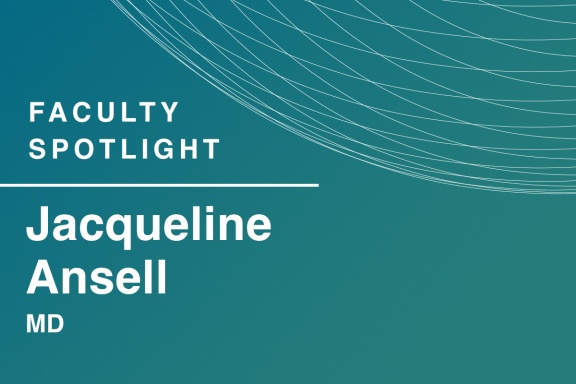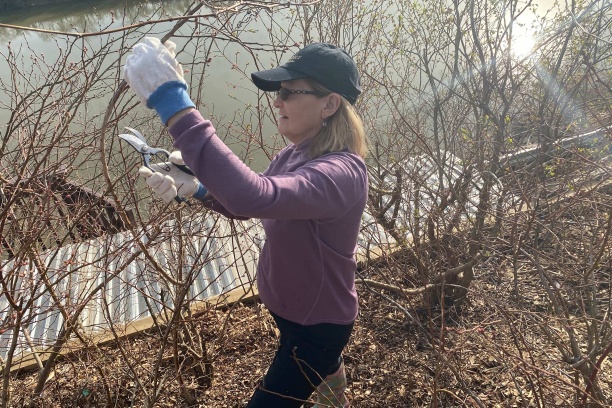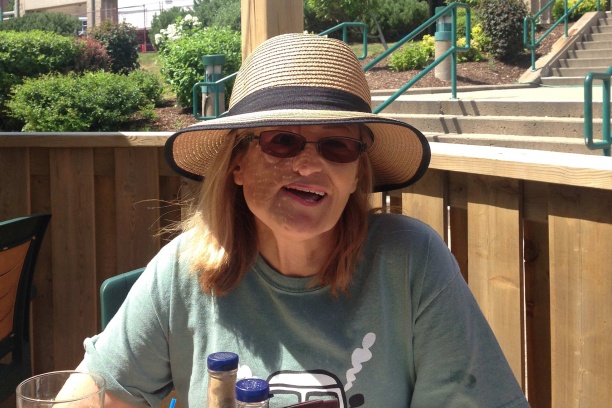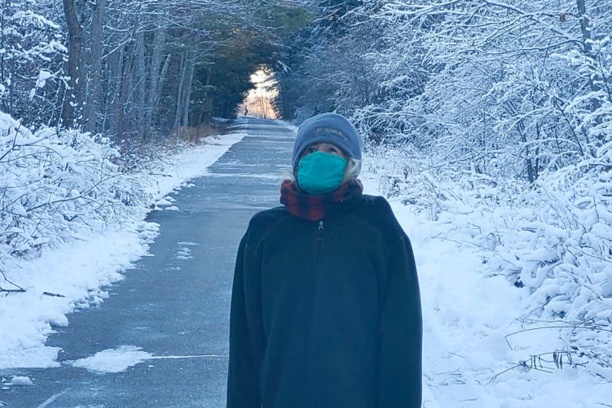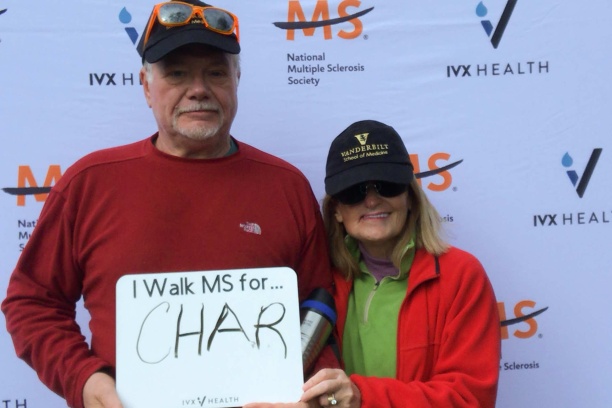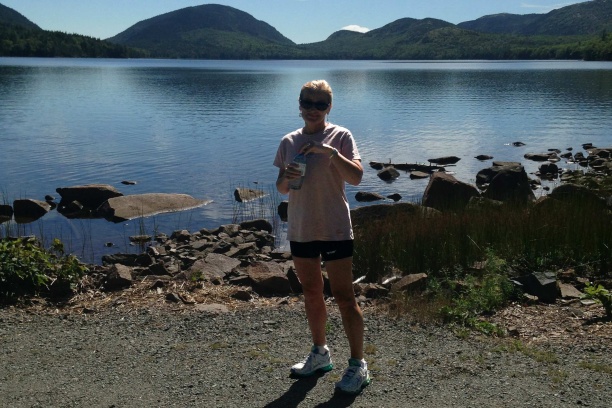Jacqueline Ansell, MD
Adjunct Assistant Professor in Clinical Neurology
Dr. Jacqueline Ansell’s specializations in EMG and sleep medicine may have had their roots in her early career as an electronics engineer for the military. After finding her way to neurology and to the U.S. (she was raised on a farm in Canada), she eventually landed in Clarksville, TN. Dr. Ansell serves as a telemedicine provider, enabling her to attend to patients in more remote areas. In her free time, Dr. Ansell enjoys reading and gardening, the latter of which supports her other hobby: bird watching.
Tell us about your background prior to arriving at Vanderbilt.
I am from a rural area of New Brunswick in Canada. I grew up on a subsistence farm adjacent to some national forest land which we managed as well. I went to school in Hillsborough, New Brunswick for all 12 years. The school was only 10 miles away, but because I bussed there, it took more than an hour to get to school since we were driving and stopping frequently along country roads. I loved the bus ride because it gave me time to do my homework and read before going home to do my chores.
I received a scholarship to King's College at Dalhousie University in Halifax, Nova Scotia. I completed all of my university studies at Dalhousie, except for spending one year abroad at Lancaster University in England on a Commonwealth Exchange Scholarship. I continued at Dalhousie for medical school and then trained in the military as a flight surgeon and diving medical officer. I completed 3 years as a General Medical Officer in the military then returned to Dalhousie to complete my residencies in psychiatry and neurology.
I entered the military when I left high school. Initially I worked in communications in the army, and I trained as an electronics engineer. When I started medical school, I switched to the navy as a medical officer. I started residency training in psychiatry because one couldn’t study neurology in the military. At the time, I was planning to be a career officer in the military. Along the way, I decided psychiatry would not do, and I knew I had to be a neurologist. So I left the military, finished up the psychiatry residency, and started my neurology residency right after that.
My first exposure to Vanderbilt was when I was a psychiatry resident at Dalhousie. I was publishing a case series on patients with postinfectious encephalomyeloradiculopathy. My mentor knew an infectious disease specialist at Vanderbilt, and she collaborated with us on our case studies, helping us understand what infections we should exclude in our patients.
What attracted you to Vanderbilt as a faculty member?
Soon after I came to the United States, I attended the neurology symposium [hosted by Vanderbilt] in Hilton Head. That was 20 years ago, and back then it was a very intimate, small gathering. I really enjoyed the format and was very impressed by the Vanderbilt Neurology faculty. I have gone back to the Neurology Symposium many times over the past 20 years.
After I started my private practice in Clarksville in 2007 [Dr. Ansell moved from Canada, to Alabama, then to Clarksville to work for the military base before opening private practice], I referred my patients to Vanderbilt because it is a well recognized center of excellence in the South. Around that time I also did some training with Dr. Charles on treating dystonia with botulinum toxin, and he’s such an effective teacher and so good with patients. Whenever I had a complicated patient, I would reach out to him, and he always got back to me and helped me out. I always felt like Vanderbilt had my back. So I was thrilled when I had the opportunity to join the Vanderbilt team.
Now I am part-time faculty, but it is wonderful to attend Neurology grand rounds each week and take advantage of all the other opportunities for continual learning.
What are your specialties and interests within neurology? What about those interests do you find particularly attractive?
At Vanderbilt I do telemedicine, and we see a variety of cases. But, EMG and sleep medicine are my specialties. Both of these sub-specialties use electrophysiology and electro-diagnostics. I’m naturally drawn to these things because of my background as an electronics engineer. I enjoy studying the bioelectric field surrounding the human body, and I have enjoyed studying the history and development of the equipment itself that we use. I also am just really fascinated by sleep—the psychology of sleep and the study of dreaming and consciousness. And of course I really like to sleep myself!
Are you involved in any research? If so, what does that entail?
I have published a case series of women with irreversible nerve damage related to macromastia [abnormally heavy breasts]. I would like to develop a screening tool to identify early symptoms in individuals who might be likely to develop nerve injury, while it’s still reversible or even before it develops. I’d also like to identify the best treatment and interventions.
What are some of the possibilities and/or challenges of treating patients virtually?
I think one of the best things about telemedicine is that it can deliver services to underserved areas. In particular, rural clinics don’t have specialized neurologists. In recent years we have discovered effective stroke treatments, but patients have to undergo evaluation and get treatment within 4.5 hours from the onset of symptoms. If you’re in a remote area, you’re not going to get to a tertiary care center (for investigations and treatment) in time. But access to an attending physician via telemedicine will help these patients get the care they need.
One of the limits of telemedicine is that it’s not a specialty on its own. You couldn’t do it [as a physician] without also being involved in frequent hands-on clinical care. You need to be taking history and examining patients all the time so that you envision what you see virtually. Someone on the other end can help, but that person may not be familiar with the neurology exam and there are certain things you just can’t do remotely.
What are your interests and hobbies outside of work?
I do organic gardening. My gardening supports my other hobby which is bird watching. I went away for one whole year, and in order to support the birds while I was gone, I planted different kinds of berries that would produce at different times. And I enjoy doing nothing—I love to be out on my deck just enjoying my gardens and the birds.
I identify as a distance runner. Now I’ve slowed to a walk because of some injuries, but I still hope it’s temporary, and that I have at least one more marathon in me!
I love reading and music. I read biographies and autobiographies. I just finished Lucky Man by Michael J. Fox, and I’m reading Andrew Jackson’s biography, American Lion, as well as a biography of Gandhi.
